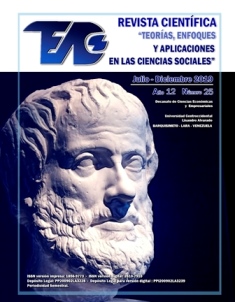Public limited company versus limited liability company. A comparative vision
Keywords:
limited company, limited liability, comparative visionAbstract
This essay offers an analysis between the public limited company and the limited liability company regulated by the Venezuelan Commercial Code, for which an exhaustive study was made based on the provisions contained in the commercial code, documents, national jurisprudence and literary productions. related to commercial companies, in order to determine, through the use of the comparative method, their coincidental and differential aspects, starting from ten tables referring to their characteristic elements: the signature, the social capital, the responsibility of the partners, the form of constitution, the administrators, the commissioner, the assemblies, the legal reserve, the dissolution and the liquidation, whose contrast grants a precise vision to the study of such societies. It was concluded that both companies maintain common characteristics and regulations, allowing the SRL to be classified as a capital company; and within those in which there is variation, the main differentiating gene is found in the form of capital; It was also established that the CA enjoys an organization well determined by the commercial legislator, as it has three (3) clearly defined bodies, a decision-making body called Assemblies, one management represented by the Administrators and a control body expressed in the Commissar; in the SRL, this is not the case, the existence of the decision-making body depends on the will of the partners and the control body of the amount of the share capital; which is why, in practice, one could find one with an incomplete social structure in its bylaws
Downloads
References
Federación de Colegios de Licenciados de Administración de Venezuela (2011). Normas Interprofesionales para el ejercicio de la función de comisario (17/08/2011). Documento en línea disponible en: www.feclave.com.ve/p/normas-interprofesionales-para-el.html Consulta (12/11/2018).
Hung, V. (1983). Sociedades. Caracas: Editorial jurídica venezolana.
Ley de Mercado de Valores (2015). Gaceta Oficial de la República Bolivariana de Venezuela, 6211, Diciembre 30, 2015.
Morles, A. (2002). Curso de derecho mercantil: La empresa. El empresario (t. I). Caracas: Universidad Católica Andrés Bello.
Morles, A. (2017). Curso de derecho mercantil: Las sociedades mercantiles (t. II). Caracas:Universidad Católica Andrés Bello.
Tribunal Supremo de Justicia. (09/12/2016). Exp. 16-0826, Magistrado Ponente: Lourdes Benicia Suárez Anderson. Disponible en: http:// tsj.gob.ve/decisiones/scon/diciembre/193697-1066-91216-2016-16-0826.HTML. Consulta (12/10/2018)
Tribunal Supremo de Justicia. (23/02/2017). Exp. 16-1024, Sala Constitucional, Magistrado Ponente: JUAN JOSÉ MENDOZA JOVER. Disponible en: http://historico.tsj.gob.ve/decisiones/scon/febrero/196324-20-23217-2017-16-1
Velásquez. E. (2007). Análisis comparativo entre el ejercicio del comisario mercantil y las atribuciones que le otorga la normativa legal. Maestría en Ciencias Administrativas. Universidad de Oriente. Venezuela.
Villarroel, F. (2017) Tratado general de derecho marítimo. Caracas: Editorial Jurídica Venezolana.
Published
How to Cite
Issue
Section
Derechos del/de autor/es a partir del año de publicación
Esta obra está bajo la licencia:
Creative Commons Reconocimiento-NoComercial-CompartirIgual 4.0 Internacional (CC BY-NC-SA 4.0)
Las opiniones expresadas por los autores no necesariamente reflejan la postura del editor de la publicación ni de la UCLA. Se autoriza la reproducción total o parcial de los textos aquí publicados, siempre y cuando se cite la fuente completa y la dirección electrónica de esta revista. Los autores(as) tienen el derecho de utilizar sus artículos para cualquier propósito siempre y cuando se realice sin fines de lucro. Los autores(as) pueden publicar en internet o cualquier otro medio la versión final aprobada de su trabajo, luego que esta ha sido publicada en esta revista.



